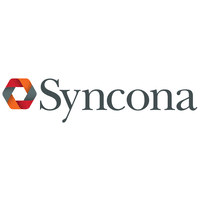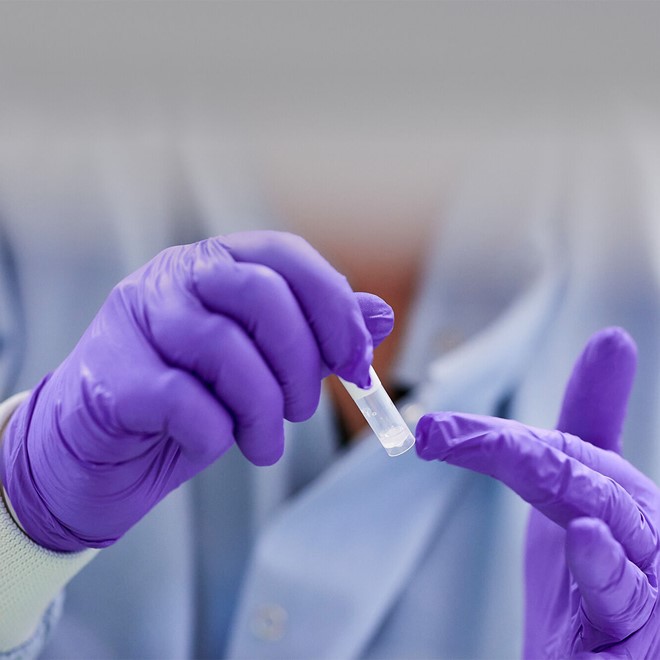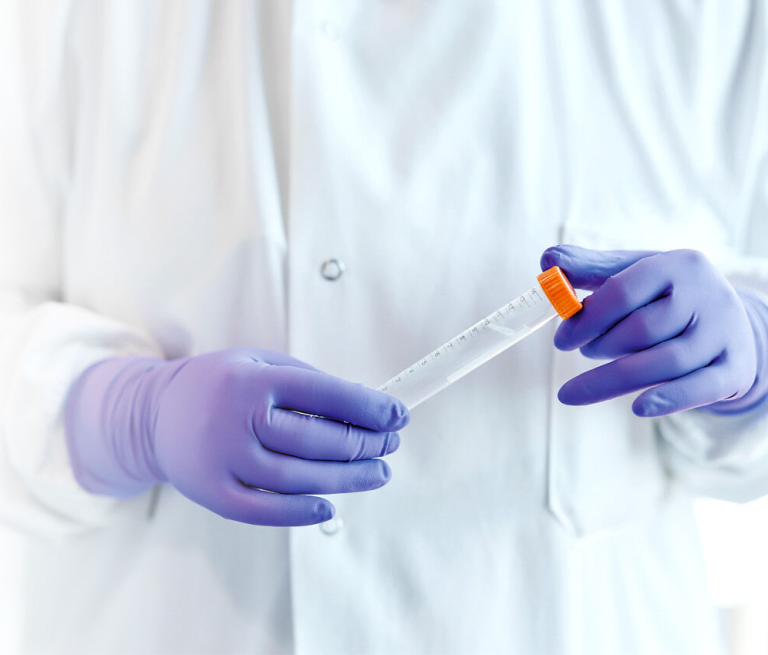Syncona Ltd (LON:SYNC), a leading healthcare company focused on founding, building and funding global leaders in life science, today issues its quarterly update covering the period from 1 October to 31 December 2018.
Highlights
Operational
· Continued strong performance across Syncona companies
· Blue Earth Diagnostics (Blue Earth) showed good sales momentum with US unit sales of Axumin for the treatment of prostate cancer of 7,575 in the period, a 16.5 per cent increase on the previous quarter; continued progress towards a label extension for Axumin in glioma, a form of brain cancer
· Three clinical-stage companies with Nightstar announcing plans to initiate a phase 2/3 expansion study in its second programme and Autolus and Freeline reporting encouraging early data
· In final stages of agreeing funding for two new companies, which fit with Syncona’s model of building companies around exceptional science.
Financial
· Net assets of £1,302.1 million, 194.5p per share[1], a total return of (6.6) per cent over the three months, predominantly driven by the decline in Nightstar’s share price; 23.9 per cent total return over the nine months from 31 March 2018
· Life science portfolio valued at £889.7 million, a return of (6.3) per cent over the three months; 58.2 per cent return over the nine months[2]
· Capital pool of £412.4 million (net cash of £130.3 million and funds investments of £282.1 million); £12.5 million of gross investment in life science over the three months; £120.7 million over the nine months
Martin Murphy, CEO, Syncona Investment Management Limited, said: “We are pleased with the strong progress across our companies over the period. Blue Earth is cash generative returning £10.8 million to Syncona during the period and continues to demonstrate strong sales momentum, whilst Nightstar, Autolus and Freeline are making excellent clinical progress.
We continue to have a high-level of conviction in our companies’ fundamentals having built them in partnership with their world-class founders and are focused on working closely with them to achieve our ambition of delivering transformational treatments for patients and generating value for our shareholders over the long-term. As we look forward, we continue to see a strong pipeline of exciting opportunities where we can continue to build globally competitive companies around exceptional science.”
Life science performance overview
Syncona’s companies have delivered strong performance during the quarter and continue to make good progress against their business plans. Blue Earth demonstrated good sales momentum and was written up by £8.8 million, whilst Autolus has seen positive share price progression over the three months. The valuation increases at these companies were outweighed by a decline in Nightstar’s share price, despite the company’s positive clinical progress; Syncona’s view on the strong prospects of the business remains unchanged. The life science portfolio delivered a negative 6.3 per cent return in the quarter.[2]
Over the nine months to 31 December 2018, the life science portfolio has generated a return of 58.2 per cent[2] with performance predominantly driven by positive valuation increases at Blue Earth and Autolus.
Strong progress across our companies
Blue Earth Diagnostics (PET imaging)
· Continued strong sales momentum for Axumin in prostate cancer
· Application to extend Axumin beyond prostate cancer screening to glioma
Over the three months, Blue Earth sold 7,575 doses of Axumin for the diagnosis of recurrent prostate cancer, up from 6,500 the previous quarter in the US. Following positive results from an investigational Phase 3 blinded image evaluation study, the U.S. Food and Drug Administration (FDA) has accepted a supplemental New Drug Application (sNDA) for the expanded use of Axumin in adults for glioma. Blue Earth is cash generative and Syncona received a £10.8 million return of capital in the quarter.
Nightstar (retinal gene therapy)
· Preliminary efficacy data from Phase 2/3 expansion study in X-linked retinitis pigmentosa (XLRP) expected in mid-2019
· Enrolment in Phase 3 trial in Choroideremia ongoing
Nightstar made good progress during the period, announcing that it plans to initiate a Phase 2/3 expansion study in XLRP. The company’s Phase 2/3 expansion study in XLRP is designed to include a No-Sham Control Arm[3], which aligns with draft guidance from the FDA.[4] Enrolment of patients in the company’s pivotal programme in Choroideremia is ongoing and Nightstar is aiming to complete recruitment into the study in the first half of 2019.
Autolus (CAR-T cell therapy)
· Significant period of clinical progress with encouraging data from AUTO3 programme
· Dosed first patient in AUTO4 and pre-clinical data read-outs for AUTO5
Autolus reported encouraging data in its AUTO3 programmes in paediatric Acute Lymphoblastic Leukaemia (pALL) and Diffuse Large B-cell lymphoma (DLBCL), with the preliminary data from both trials showing encouraging safety data and early clinical efficacy. Autolus also announced that it had dosed its first patient in the Phase 1/2 trial of AUTO4 in TRBC1-positive peripheral T cell lymphoma; alongside pre-clinical data from its sister program, AUTO5 targeting TRBC2-positive lymphoma.[4]
Freeline (gene therapy, systemic diseases)
· Encouraging results from first two patients treated for Haemophilia B
· Phase 1/2 trial ongoing with further data expected in 2019
Freeline reported initial positive data from the first two patients in its ongoing Phase 1/2 trial in Haemophilia B at the American Society of Haematology (ASH) Conference in December. Within four weeks of dosing, the FIX activity[5] in both participants, who were dosed in the low dose cohort, rose to greater than 30%, and at 15 weeks stabilised at 45% ±5%, which approaches the normal range of FIX activity in the general population’s blood of between 50-150%. Post-period end, Freeline announced its third programme in Type 1 Gaucher Disease, an inherited metabolic disorder characterized by the build-up of glucocerebroside in lysosomes throughout the body and also presented pre-clinical data from its second programme, targeting Fabry’s disease at the WORLD Symposium.
Achilles (neo-antigen cell therapy)
· Management team strengthened
· CTA approval to conduct Phase I/II study in first programme
In December, Achilles announced the appointment of Dr Edwin Moses as Chairman. Dr Moses was most recently CEO of Ablynx NV for 12 years, building it from a small R&D focused organisation to a commercial business with a broad biologics pipeline, through to its sale to Sanofi for $4.8 billion in 2018. Dr Iraj Ali became CEO of the business, following a period as Interim CEO.
Post-period end, Achilles announced that its Clinical Trial Application (CTA) to conduct a Phase I/II study with its lead product, a tumour-derived T cell therapy targeting clonal neoantigens, in development for the treatment of advanced Non-Small Cell Lung Cancer (NSCLC), has been approved by the UK regulatory authority, the Medicines and Healthcare products Regulatory Agency (MHRA). The study, an open-label, multi-centre Phase I/II trial evaluating the safety and clinical activity of clonal neoantigen T cells (“cNeT”) in patients with advanced NSCLC, is expected to enrol the first patient in the second half of 2019.
The rest of Syncona’s companies in the Life Science portfolio continued to make positive progress in the quarter.
Increase in cash-weighting in strategic capital pool
At 31 December 2018, our strategic capital pool was £412.4 million with £130.3 million held in cash and £282.1 million in fund investments. Over the nine months, the fund investments portfolio has produced a negative return of 1.4 per cent. Over the three months to 31 December, the fund investments generated a negative return of 8.7 per cent, with the significant increase in public market volatility in the final quarter of 2018 impacting performance.[6]
The cash weighting in our capital pool has increased to 31.6 per cent, with £113.3 million of redemptions made in the three months. Against this, two new fund investments were made in the quarter totalling £16.7 million. Since the period end, we have redeemed an additional £13.9 million of fund investments, further increasing our cash weighting and we expect to see this trend continue as we continue our strategy of transitioning the fund investments away from directionally biased funds.
Over the three months, we made a gross investment of £12.5 million from our capital pool into our life science companies (£120.7 million into life science over the nine months). We continue to expect investment for the financial year to be at the top end of guidance of £75 million to £150 million.
|
Company |
30 Sep Value (£m) |
Net invest- ment / return (£m) |
Valuat- ion change (£m) |
30 Dec 2018 value (£m) |
% NAV |
Valuat- ion basis |
Fully diluted owner- ship stake (%) |
Focus area |
|
Established |
||||||||
|
Blue Earth |
231.6 |
(10.8) |
8.8 |
229.6 |
17.6% |
rDCF |
89 |
Advanced diagnostics |
|
Maturing |
||||||||
|
Autolus |
319.9 |
– |
29.9 |
349.8 |
26.9% |
Quoted |
32 |
Cell therapy |
|
Nightstar |
207.0 |
– |
(87.8) |
119.2 |
9.2% |
Quoted |
38 |
Gene therapy |
|
Freeline |
93.5 |
– |
– |
93.5 |
7.2% |
Cost |
80 |
Gene therapy |
|
Developing |
||||||||
|
Gyroscope |
11.0 |
4.0 |
– |
15.0 |
1.2% |
Cost |
80 |
Gene therapy |
|
Achilles |
8.3 |
7.9 |
– |
16.2 |
1.2% |
Cost |
69 |
Cell therapy |
|
Orbit Biomedical |
9.3 |
– |
0.2 |
9.5 |
0.7% |
Cost |
80 |
Surgical devices |
|
SwanBio |
5.3 |
– |
0.1 |
5.4 |
0.4% |
Cost |
72 |
Gene therapy |
|
OMASS |
3.5 |
– |
– |
3.5 |
0.3% |
Cost |
46 |
Therapeutics |
|
Life science investments |
|
|
||||||
|
CRT Pioneer Fund |
32.8 |
0.6 |
– |
33.4 |
2.6% |
Adjusted Third-party |
N/A |
|
|
CEGX |
6.5 |
– |
– |
6.5 |
0.5% |
Adjusted PRI |
9 |
|
|
Adaptimmune |
15.6 |
– |
(8.9) |
6.7 |
0.5% |
Quoted |
1 |
|
|
Syncona Collaborations |
1.4 |
– |
– |
1.4 |
0.1% |
Cost |
100 |
|
|
TOTAL |
945.7 |
1.7 |
(57.7)[7] |
889.7 |
68.4% |
|
|
|







































